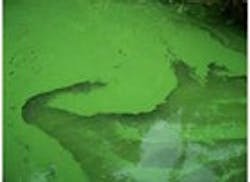Environmental Groups to Sue EPA About Wisconsin Waters
A coalition of environmental groups said they it seeks through legal action to push the United States Environmental Protection Agency (EPA) to regulate nitrogen and phosphorus pollution in Wisconsin waters under the Clean Water Act. They claim the EPA pledged to regulate this pollution in 1999 and action was delayed for years.
Nitrogen and phosphorus pollution has been shown to contaminate drinking water, contribute to the growth of potentially toxic cyanobacteria or “blue-green algae, and is the main cause of algal blooms in the Great Lakes and the dead zone in the Gulf of Mexico, the coalition said.
To Wisconsin Department of Natural Resources’ (DNR) credit, the coalition said, the DNR moved forward on EPA’s 1999 order and has collected all the data necessary to set standards for control of phosphorus pollution, giving the EPA the information it needs to set standards. The coalition said it is hopeful that the current EPA will act to put those standards in place, and they’re taking legal action to accelerate the process. Coalition members say the action is necessary because Wisconsin can’t wait any longer for clean water.
“Wisconsin DNR has developed the science needed for sound phosphorus standards, and EPA must honor its 1999 pledge to set standards for this harmful pollutant that hampers recreation for Wisconsin residents by contributing to green, stinky water, closed beaches and toxic algae,” said Betsy Lawton, interim executive director of Midwest Environmental Advocates and an attorney representing the coalition.
This year, nutrient-induced blue-green algae in Wisconsin has led to the death of pets and several cases of rashes, sore throats and eye irritation, said the coalition.
“Businesses located on waters tainted with toxic algae are really hurting,” said Denny Caneff, executive director of the River Alliance of Wisconsin. “They lose customers who flee the stench and the health hazards posed by toxic algae. EPA needs to act to limit the nutrients causing these algae blooms.”
The groups filed a 60-day notice of intent to sue, the first step in a Clean Water Act citizen suit. The groups now must wait 60 days before filing a formal lawsuit.
Source: Midwest Environmental Advocates
